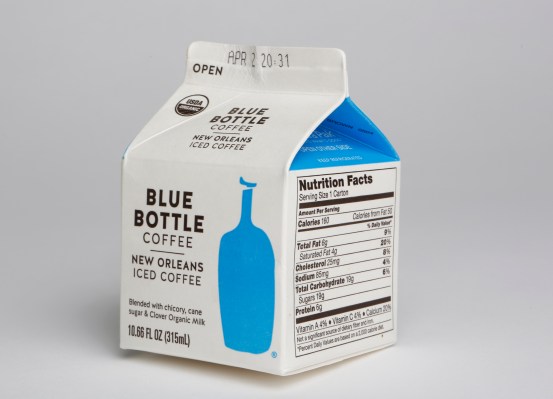Unilever’s $1 billion acquisition of five-year-old razor blade reseller Dollar Shave Club is a key data point into the health and attitude of the startup environment, but also the way that rapid growth companies in more traditional industries are valued.
It’s quite easy to be rude about the deal. Buying Dollar Shave Club wasn’t about buying patents, an R&D team or a production facility — it has just 190 employees who’ve made a thin veneer of a company that resells Dorco generic razor blades for what has so far been a loss, all while undercutting premium blade sellers and removing value from the marketplace.
Dollar Shave Club doesn’t make the reasonably unremarkable blades (it outsources the logistics to a third party in Kentucky), it doesn’t make money and, while we love to think of it as disruptive, I’m not totally sure what’s remotely new about the model of selling direct or regularly.
On the other hand, the company has accomplished year on year and rapid user growth, now has 16 percent unit sales of a vast U.S. shaving industry, can now upsell a range of skin care products to subscribers and can leverage the brand and relationship to propel itself into other categories. Above all else, the brand, especially with Unilever, can launch around the world with minimal investment. The investment isn’t related to current profitability, but, like Airbnb or Uber or WeWork, the promise of what it can become.
Old-world business with new-world metrics
Users, subscribers, growth, global expansion, minimal marginal costs, the promise of future success; this all sounds a bit like the verbiage of a tech company — and that’s because the industry has fallen in love with the idea that every trendy fast-growing company is a tech company.
Domino’s is now “a tech company that happens to make pizza,” Dell likes to think they are “the world’s largest startup” and when Dollar Shave Club’s investment came from venture capital firms not private equity, it was called seed funding. From Blue Apron to Casper mattresses, we’re thinking any company that sells direct that’s young and with a nice website is miraculously a tech company.
How should we value companies?
I get a little confused. For years we measured the success and future promise of a business with time-honored valuation techniques; amongst other criteria, we looked at income and profit, the value of liabilities and assets, the potential market. Experts made reasonable projections of future earnings and profitability, and empirical formulae guided decisions. It was linear and unimaginative thinking.
Many companies are not tech companies, they are brands.
New-world companies don’t fit the bill; the likes of Airbnb, Uber, Alibaba, Facebook, Netflix, Niantic Labs and Snapchat are the fastest-growing companies the world has ever seen. Their growth is exponential, their assets are almost ephemeral, they shun all traditional economic models for valuations. The investments required to scale are almost negligible, their market size often unlimited, their shift from loss-making to profit can be almost immediate.
When valuing these companies, understandably, assets are ignored; from IP, to employee numbers, to locations served, to (vitally) profit — all are ignored; we now deem these as unhelpful, limiting benchmarks of the past.
The hard thing is that these companies are so different. Pinterest is “worth” billions while making negligible revenue, Spotify scales to bring in greater revenues each year, which seems to just increase the losses it makes, while Facebook’s long being highly and efficiently profitable.
It’s a minefield. We have companies like Amazon that invest all potential profits into the company to manage a P&L to zero profit each year. We have companies like Tesla that could change the future of mobility and energy or slowly fade. Pokémon Go could be the next Flappy Bird or the next Facebook. Optimists quickly recall the potential to be the next Facebook or Airbnb, but their memories forget about Groupon, One Kings Lane, fab.com or Theranos.
We probably need to get smart about what companies really are
Many companies are not tech companies, they are brands. GoPro, Chipotle, Sonos, Blue Bottle Coffee, Casper and Shake Shack are good companies with great products, but they all exist in marketplaces where existing benchmarks are probably helpful.
Chipotle or Shake Shack is more McDonald’s than it is Snapchat; WeWork is likely more like Regus than Facebook; Blue Bottle Coffee needs to do a Starbucks expansion plan, not a YouTube roll out.
These are massively valuable brands; they are companies with great, but not guaranteed, futures ahead of them. They are not disruptive, they don’t change the fundamental unit economics of business — they are just like brands before them: powerful levers of the power of brands to extract value.
Then there is a different world, an array of companies as platforms, the likes of Uber, Airbnb, TransferWise, WeChat, Snapchat, Facebook and perhaps even Twitter, that are widely loved or used, have created clear consumer value and can be scaled easily. Some may be burning cash, some may not be churning out profit from their user base, but it’s clear to envisage a world in which they hold defendable, profitable business for the medium term.
So the next time we’re looking at valuations, let’s not assume that old-world metrics are irrelevant, let’s not digest without critical thinking that “it’s a tech company that happens to make x,” let’s not assume that things are different now, or that they are the same as always. Let’s pause to think about the longevity and the real value to be extracted and over how long a term.
